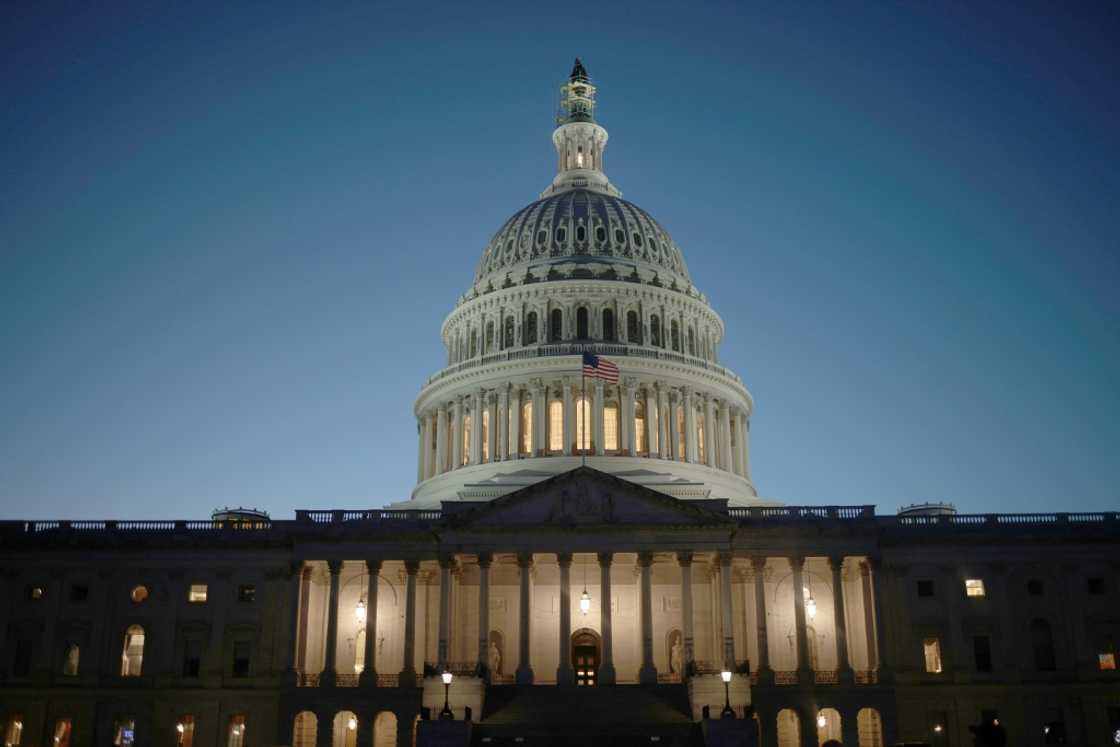US lawmakers race to avert weekend government shutdown

Source: AFP
US lawmakers released a $1.2 trillion package in the early hours of Thursday to complete the 2024 federal budget -- teeing off a race to sign it into law before a government shutdown looming at the weekend.
The six-bill, 1,012-page package represents the largest and most contentious section of federal funding, with cash running out at midnight on Friday night for three-quarters of the government, including defense and homeland security.
The Republican-led House of Representatives normally demands 72 hours to study legislation but lawmakers are expected to drop the requirement to vote Friday to send the deal to President Joe Biden's desk.
Both chambers are expected to pass the package with broad cross-party support, but a technical -- and brief -- partial government shutdown is still possible as the Senate can take several days to amend and then rubber-stamp legislation.
Congress is scheduled to go on recess for two weeks after this weekend.
The funding fight came with both sides pushing their campaign messaging and priorities ahead of November's presidential election, when Biden faces Republican challenger and former president Donald Trump.
The first quarter of the budget -- six bills covering agriculture, science, veterans' programs, transport and housing -- passed without major drama last month.
Five of the six bills covering the rest of federal spending were straightforward, but disputes over the funding of homeland security delayed the release of the deal, originally expected at last weekend.
Trump -- who wants to run on Biden's perceived weakness on immigration -- pressured lawmakers earlier this year to kill a bipartisan border security bill, leaving homeland security funding as the alternative vehicle for policy changes.
The Republicans didn't get any major policy victories, as the budget amounts essentially to a spending freeze.
But they were able to negotiate more border patrol agents, expanded migrant detention facilities, a $20 billion cut for tax enforcement, a six percent reduction to the foreign aid budget and a new law banning diplomatic buildings from flying LGBTQ pride flags.
'Policy wins'
"House Republicans have achieved significant conservative policy wins, rejected extreme Democrat proposals, and imposed substantial cuts to wasteful agencies and programs while strengthening border security and national defense," Speaker Mike Johnson said.
Democrats held out for more funding for pay equity for airport security staff and negotiated 12,000 visas for Afghans who helped the United States during the war.
They also won a $1 billion funding boost for child care, as well as climate change programs at the Pentagon.
Patty Murray, the Senate Democrats' point person on the budget, said her negotiators had defeated "outlandish cuts that would have been a gut punch for American families and our economy."
The hard-line conservative House Freedom Caucus urged lawmakers to reject the deal before the text was released, arguing that it effectively locks in Biden administration "open border" policies for another six months.
But a robust cross-party coalition is expected to secure the two-thirds majority the bill will need to advance to the Senate.
The upper chamber can move quickly if there is agreement from all 100 senators to skip cumbersome procedural steps -- but any individual member can hold up the process for a few days.
Although this would lead to a funding gap stretching into early next week, in reality the average American would see little effect from such a brief shutdown.
The budget for 2024 should have been completed nearly six months ago and there has not been a government shutdown this late in the fiscal year since it was redesigned in 1976 to start on October 1.
PAY ATTENTION: Stay informed and follow us on Google News!
Source: AFP




